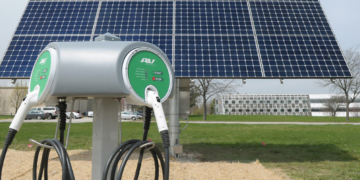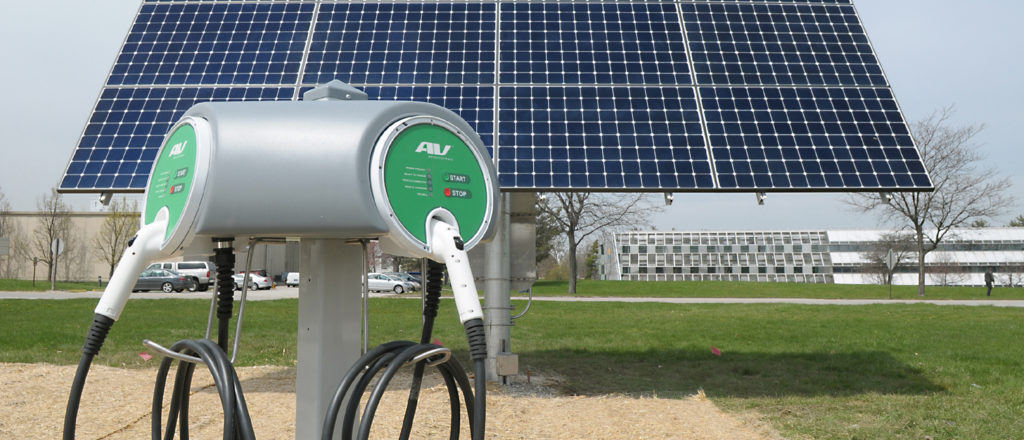Ford Motor Company told dealers on Thursday that it was dropping certain equipment requirements to boost the sales of its struggling electric vehicle (EV) line, according to Bloomberg.
Dealers had previously needed to invest up to $1.2 million in certain equipment like chargers in order to be eligible to sell Ford’s EV line, with the change allowing all 2,800 dealerships with contracts to the company to sell EVs, according to Bloomberg. The changes to the program are intended to boost struggling sales of Ford’s EV models, which has contributed to the automaker taking a $1.3 billion loss on its EV production in just the first quarter of 2024 after selling only 10,000 vehicles.
“The growth has slowed down and we’re getting into the tough innings,” Marin Gjaja, the COO of Ford’s EV unit, told reporters following the announcement, according to Bloomberg. Gjaja said that Ford expects the change will “help us grow our sales.”
The original EV program was started in 2022 and only had around 1,400 dealers enrolled, meaning the company’s EV could not be sold at around half of dealerships, according to The Wall Street Journal.
Ford expects to lose another $5.5 billion on the production and development of its EV line in 2024, with the company’s CEO Jim Farley previously calling it the “main drag” on its business, according to Bloomberg. The company will now require the installation of two EV chargers costing around $10,000 each at all dealerships, far less than the $100,000 chargers that were part of the previous requirements.
Supreme Court Sides With Starbucks In Labor Dispute https://t.co/RgoU5rAnF1
— Daily Caller (@DailyCaller) June 13, 2024
EV market share compared to gas-powered vehicles fell in the first quarter of 2024 from 7.6% to 7.1%, ending the trend of huge EV market growth in 2023 that totaled 47%. Sales for all vehicles grew 5% in the quarter, while EV sales grew just 2.7%.
Ford is one of many automakers that has had to delay the production of its EV lines amid slowing demand, including General Motors and Mercedes-Benz. The company announced in April that it would be focusing more on hybrid vehicles.
The Biden administration has sought to incentivize the transition to EVs by creating an up to $7,500 tax credit to ease costs for both consumers and companies. Federal regulators have also finalized rules that effectively require that 67% of all light-duty vehicles sold after 2032 be electric or hybrid.
Ford did not immediately respond to a request to comment from the Daily Caller News Foundation.
All content created by the Daily Caller News Foundation, an independent and nonpartisan newswire service, is available without charge to any legitimate news publisher that can provide a large audience. All republished articles must include our logo, our reporter’s byline and their DCNF affiliation. For any questions about our guidelines or partnering with us, please contact [email protected].
















